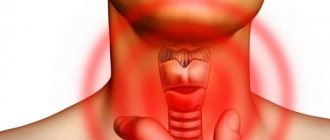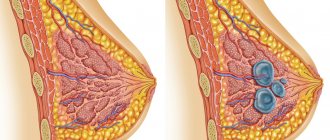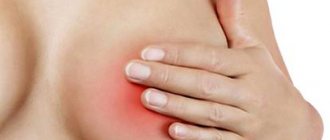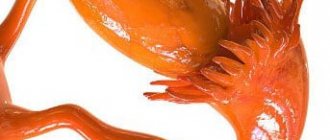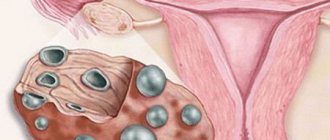Despite the fact that menopause is a completely natural state for a woman who has reached the age of 45-50 years, sometimes it is difficult. The nervous system especially suffers from this: a woman notices touchiness, mood swings, and irritability.
And it’s good if this is so, because such conditions can be dealt with with the help of volitional efforts, but if a woman experiences depression during menopause, which is also accompanied by panic attacks, then she must take tranquilizers, antipsychotics and sedatives - that’s all will help make her life easier. Of course, such medications should only be prescribed by a doctor.
Menopause and depression: effective treatment
The menopausal period is accompanied by a restructuring of the entire body, which makes it difficult for a woman to psychologically cope with these changes. During menopause, depression can be caused by both physiological changes and psychological factors.
Of course, not all women suffer from a similar disorder during menopause, but it is still not possible to prevent the consequences of psychological restructuring in advance. An important step here is a timely visit to a specialist, organizing support for the body, as well as knowledge of the causes, main symptoms and methods of combating depression. Using the following information, you can normalize your psycho-emotional state, getting rid of various mood swings and a depressed state.
Beat the night tides and get some sleep
Hot flashes and excessive night sweats are some of the hallmark symptoms of menopause. They cause not only physical discomfort to a woman, but also affect her psychological state and sleep. Constant lack of sleep negatively affects mood and thinking, and progressive depression can lead to insomnia. It turns out to be a vicious circle.
“Menopause is a challenging period of hormonal vulnerability, and when you add in sleep disturbances and various life events, it becomes something of a perfect storm,” explains Pauline Maki. “The only way to get rid of night sweats is to improve your estrogen levels to balance out the hormonal decline.” Unfortunately, women are poorly aware of menopausal depression, and few are willing to discuss this problem openly. And the goal of our guidelines is to change this. To cope with depression during menopause, women and their doctors must work together; diet and exercise alone will not do it.”
Reasons for destabilization of the psycho-emotional background during menopause
According to statistics, mental disorders during menopause occur in 8-15% of women. And this is not strange, given the complex of factors that cause depressive moods:
Physiological influence
Destabilization of hormonal balance and estrogen surges can greatly affect the psychological state. Many doctors are of the opinion that it is precisely such fluctuations that provoke menopausal disorders. The fact is that serotonin is responsible for a good mood, and its production in the brain is directly influenced by estrogen. A decrease in the level of this sex hormone provokes a decrease in serotonin, which causes sudden mood swings and depressive symptoms.
Psychological influence
Many women associate menopause with old age and loss of sexual attractiveness. Self-perception is disrupted, in which all age-related changes are perceived too harshly by a woman. And the unpleasant symptoms of menopause only complicate the situation, weakening the psyche. In addition, many people want to maintain a normal lifestyle, but with severe menopausal syndrome, this is very difficult to do. With constant hot flashes and disturbed sleep patterns, irritability and a sad mood increasingly occur. Even if there were no such disorders during reproductive age, the psyche in menopause still loses its natural protection.
It is important to understand that any treatment cannot be carried out without studying the nature of the disease, its form and characteristics of its course.
Why menopause increases your risk of depression
There are both environmental and biological factors that lead a woman to become depressed during menopause, says lead study author Dr. Pauline Mackie of the University of Illinois at Chicago:
“Menopause is an inevitable physical change that directly affects the hormonal balance in a woman’s body. During the aging process, the functionality of the ovaries decreases, and the supply of eggs is gradually depleted. “Many people think that the ovaries stop working due to a steady decrease in the hormone estradiol, which they produce, but in fact we are seeing sharp fluctuations in estrogen.”
“It turns out that estrogen fluctuations and mood swings are closely related,” Dr. Maki continues. — The hormone estrogen stimulates the production of serotonin, which, in turn, helps regulate emotional and psychological states. So when estrogen levels fluctuate, serotonin and mood can also become destabilized. Knowing this, it is easier for women to mentally prepare for what may happen to them when menopause occurs.”
Menopause: what do women say?
“I admit, with the advent of menopause, I no longer felt the same way as before. It hit me at 43 and I was completely devastated. I suffered from anxiety and insomnia, my weight increased—I was literally bloated. People who had not seen me for a couple of years did not recognize me when they met. It seemed like this nightmare would never end. "
“I didn’t think that menopause would start so early. I felt alone, distraught and completely unable to tell anyone. I was able to return to normal life only with the help of hormone replacement therapy.”
Types of depression during menopause
It is noteworthy that depression during menopause can manifest itself in various forms. Among the main types of depressive disorders it is worth highlighting:
- Climacteric. This type is characterized by apathy towards previously interesting and significant things, systematic tearfulness, increased anxiety and unusual passivity. Against the background of these signs, sexual desire decreases, sleep problems arise, and hot flashes become more frequent.
- Endogenous. Here, hot flashes do not occur more often, but pessimism, apathy and melancholy come to the fore. A woman looks negatively at her past, present, and future. Sometimes appetite disappears and insomnia occurs.
- Involutionary. This type is characterized by a woman exaggerating the severity of her health problems. The patient is constantly worried about her condition and is very afraid of death. In addition, the involutional type of depression is very often accompanied by painful and unpleasant sensations.
- Psychogenic. Very often anxiety manifests itself against the background of difficult and unpleasant thoughts. There is a decrease in self-esteem and a very critical attitude towards one’s personality. Additionally, sleep problems, poor appetite, and sudden weight loss may occur.
It is very difficult to independently determine what type of disorder a woman suffers from. Therefore, it is rational to contact a specialist. After all, the absence of a fight against psychological problems increases the symptoms of menopause, provoking a number of serious diseases.
Main symptoms of depressed mood during menopause
Depressed mood is not always a direct indication for taking medications. Depression during menopause has its own symptoms, but they are taken into account as a whole. Treatment is prescribed based on the following symptoms and their frequency:
- deterioration in performance;
- constant apathy;
- a very critical attitude towards one’s appearance;
- decreased self-esteem;
- tendency to loneliness;
- feeling of restlessness and anxiety;
- the appearance of various phobias;
- reluctance to move on;
- skepticism about the future;
- sudden mood swings;
- unstable emotional state,
- severe headaches,
- loss of appetite,
- fainting and dizziness,
- imbalance in the gastrointestinal tract,
- various pains in the body.
Many of these symptoms can be caused not only by psychological disorders, but also by hormonal imbalance. Therefore, it is very important to accurately establish the cause of such manifestations. If symptoms continue for more than two weeks, gradually intensifying, then a visit to the hospital should not be postponed. The fewer manifestations, the easier it is to return to a normal lifestyle again.
Features of disease diagnosis
If a woman suspects depression during menopause, it is best to visit the following specialists:
- Therapist. You cannot skip this point, because it is this doctor who will prescribe the necessary diagnostics. Its results will help exclude various pathologies, and will also be useful to other doctors, to whom the therapist also refers.
- Endocrinologist. A woman must visit this specialist regularly, because with his help, she can optimally enter menopause, preventing unpleasant symptoms. Depression can be caused by thyroid and hormonal problems. Therefore, it is the endocrinologist who can exclude such provocateurs for the accuracy of further treatment.
- Cardiologist. The depressive symptom may be associated with the usual changes of menopause, and not with problems of the nervous system. It is important to rule out diseases of the cardiovascular system and find out the causes of surges in blood pressure, and only then choose treatment.
- Neuropathologist. This doctor will examine the patient’s nervous system, study the test results and the nature of the symptoms. After this, treatment is prescribed. If all of the above specialists have not found pathologies that can provoke menopausal disorders, then it is necessary to consult a psychotherapist.
Complications
In the process of hormonal and other changes that occur in the body during menopause, unpleasant accompanying complications may arise. This:
- Frequent fractures
- Itching in the vaginal area
- Depressive states
- Atrophic changes
- Dyspareunia
- Bladder problems
- Uterine bleeding
- Allergic manifestations
- Endometrial neoplasia
- Discomfort during intercourse
- Atrophic vaginitis
We recommend reading: 10 books that will help you get out of depression and start living again
Treatment of depression during menopause
Where should you start treatment? During menopause, women most often suffer from self-esteem due to the fact that they cannot accept such age-related changes as the next stage of life. Therefore, for starters it’s worth:
- It is normal to perceive menopause, because with the right approach, unpleasant symptoms will disappear.
- Provide yourself with a positive psychological attitude.
- Avoid loneliness, make new connections.
- Find a new hobby or interest. Quite often, women practice yoga during menopause.
- Take care of your appearance and wardrobe.
- Organize interesting and exciting leisure time with pleasant people.
- Avoid talking about menopause symptoms (with the exception of your doctor).
- Constantly be on the move, not forgetting about short breaks.
- To refuse from bad habits.
- Adhere to a healthy lifestyle.
Every woman can prevent menopausal disorders with these basic tips. In this case, you will not need to take medications or undergo psychotherapy. It has already been proven that the success of the fight against depressive disorders depends almost 90% on the efforts of the patient.
Taking hormonal medications for mild depression
Reviews from doctors indicate that mild forms of depression during menopause can be overcome by eliminating problems with hormonal balance. The doctor may prescribe:
- Tablets (Divina, Klimen, Trisequence)
- Gels (Estrogel, Divigel)
- Plasters (Klimara, Extraderm)
- Candles (Ovestin, Klimaksan)
- Ointments (Klimadinon)
But before starting HRT, it is necessary to undergo hormone tests to determine the exact state of hormonal balance. Only correctly selected hormonal drugs improve the production of serotonin, stabilize the functioning of the nervous system, thereby eliminating depressive disorders.
Antidepressants and their benefits
If depression during menopause goes away after hormonal therapy, then the problem must be solved with antidepressants. In some situations, HRT has a side effect in the form of destabilization of the mental state. Antidepressants for menopause have a number of advantages:
- act softly;
- have no side effects;
- show good performance;
- are normally perceived by the body;
- do not cause drowsiness;
- are not addictive.
Antidepressants help eliminate:
- irritability,
- sense of anxiety,
- passivity,
- apathy,
- problems with appetite,
- insomnia.
It is worth noting that they can only be taken after consultation with a doctor, because only he can accurately determine menopausal disorders. It is also necessary to remember that antidepressants are introduced and discontinued gradually so that the body gets used to their effects.
In this group it is worth highlighting time-tested drugs:
- Paroxetine,
- Fluvoxamine,
- Fluoxetine,
- Finlepsin,
- Depakin,
- Coaxil,
- Ephevelon,
- Poroxetine,
- Velafax,
- Velaxin,
- Fluoxetine.
Psychotherapy for depression in menopause
Depression can also be treated in a psychotherapist's office, but in this case drug therapy is excluded. Visits to a specialist in compliance with his recommendations will find their positive manifestation at the following levels:
- mental,
- vegetative,
- neurological,
- somatoorgan,
- somatosystemic.
The fact is that menopausal depression can have such a complex mechanism that it will include all of the above levels. But in this matter, the psychotherapy program is built individually for each case.
It is very important to respond to any changes in your psychological health, because these problems can aggravate existing diseases, as well as cause new ones. That is why depression needs to be fought, but only under the supervision of a doctor, following simple recommendations for stabilizing the psycho-emotional state.
Hormone replacement therapy for menopause
“There are many myths about hormone replacement therapy (HRT), and most women are wary and distrustful of this type of treatment. Of course, HRT has a number of contraindications and side effects, however, the benefits of its use outweigh the possible risks, says Dr. Maki. — Despite the fact that hormone replacement therapy cannot completely cure depression, it will still help normalize the level of the hormone serotonin and improve a woman’s quality of life. By the way, controlled use of antidepressants is also a good way to get rid of depression during menopause. If you find yourself on the verge of menopausal depression, discuss the possibility of taking these medications with your doctor."
Depression during menopause: how to cope with it
The article describes the causes of depression during menopause, gives characteristics of each type, and lists the directions of diagnosis and treatment.
Depression is a mental disorder accompanied by a triad of symptoms: decreased mood, decreased motor activity, and slowed speech. During menopause, this condition occurs in 10–15% of women.
Material and methods
In the outpatient and inpatient settings of the Psychiatry Clinic named after. S.S. Korsakov First Moscow State Medical University named after. THEM. Sechenov, using clinical and clinical follow-up methods, examined 150 women aged from 41 to 65 years.
Most women, before coming to the clinic, underwent examination and treatment (often long-term, for many years) by gynecologists, endocrinologists, and therapists. Some patients came to the clinic due to mental disorders that first arose against the background of pathological menopause.
Causes of depression during menopause
Depression during menopause occurs for the following reasons:
- Hormonal changes in the body. There is a decrease in the level of female sex hormones - estrogens, which are involved in the synthesis of biologically active substances (for example, serotonin, which improves mood). A decrease in serotonin plays a key role in the pathogenesis of depression.
- The decline of reproductive function and the onset of menopause are perceived by women as a signal of aging.
- The feeling of discomfort and autonomic disorders that accompany menopause reduce a woman’s ability to work. But she is forced to continue working and carry out her daily duties around the house. Overwork accumulates, which can lead to stress and depression.
- Changes in a woman’s appearance – pigment spots appear, gray hair appears, the skin becomes flabby, wrinkled, plumpness develops, and the gait changes. These signs have a negative impact on the female psyche.
Types of depression during menopause
There are the following types of depression during menopause:
- menopause – occurs in women aged 40–50 years against the background of hormonal changes. The woman is tearful, anxious, and her mood often changes. Appetite and interest in what is happening is reduced or absent. Hot flashes are characteristic. Libido decreases;
- endogenous - caused not by reactive reasons, but by age-related changes and internal diseases of the body. Depressive symptoms come to the fore; vegetation may not appear at all until a certain period. When it joins, this type moves to a neurotic level and proceeds more easily;
- involutional – occurs during the postmenopausal period at the completion of hormonal changes. The woman loses her former interests. There are no autonomic symptoms. Overvalued and hypochondriacal ideas are observed - the patient is fixated on her well-being, it seems to her that she has an incurable disease, she imagines future catastrophes, natural disasters, the death of herself and her loved ones. There are frequent attempts at suicide or the desire to kill children and grandchildren “so that they don’t suffer.” At the height of the disorder, thrashing, confusion, and incoherent speech are possible (melancholic raptus).
- psychogenic – occurs during stressful situations.
Types of depressive disorders
Serious hormonal changes in a woman’s body lead to a change in psycho-emotional state in 75-80% of patients. Despite the fact that menopause is not a painful condition, the consequences of serious changes in the body can pose a health hazard. During menopause, a woman's general psychological state plays a key role. Representatives of the fairer sex need the support of family and friends; it is very important to do what you love and not lose interest in life.
However, not everyone manages to maintain good spirits. Doctors have found that during menopause, women are susceptible to several types of depression : menopausal depression, endogenous, psychogenic and involutional:
- The climacteric state of depression in most cases occurs simultaneously with changes in the functioning of the endocrine system and vegetative-vascular disorders. Women experience a feeling of fear because of the passing of youth, are in a state of tearfulness and feel confused. An unbalanced psycho-emotional state leads to loss of sleep and drowsiness during the day, and loss of interest in social life. Such symptoms accompany most patients throughout the entire period of menopause.
Endogenous depressive state is characterized by mild neurotic disorders. The main symptoms at this stage are depression, inability to enjoy life, decreased sex drive and loss of appetite. With the development of depression, periodic hot flashes are possible, but they are not pronounced and may be absent altogether.
- The psychogenic type of depression is a consequence of psychological shock. Patients may experience a short-term state of stupor, loss of appetite and weight, and insomnia. Over time, symptoms of vegetative-vascular disorders come to the fore, and hypochondria may develop. Neurotic manifestations do not have pronounced symptoms, but may be accompanied by an almost complete lack of sleep due to constant worries about the lack of prospects for the future.
- The involutional state of depression is considered one of the most dangerous. The disease manifests itself after menopause ends - during the postmenopausal period. Since the main restructuring of hormones has already been completed by this point, the body gradually gets used to the new conditions. Involutional depression can manifest itself as fussiness in a woman’s actions and the presence of constant anxiety. The most common complaints of patients are fear of incurable diseases, premonition of inevitable disasters, ruin and death. All these obsessive thoughts are not true, but they are extremely dangerous. Involutional depression requires long-term and complex treatment, since symptoms can persist for several years.
The psychological and physiological causes of depression are inextricably linked. Every woman during menopause should especially carefully monitor her health, and if her health worsens, seek help from doctors.
Symptoms and diagnosis of depression during menopause
Depressive symptoms depend on the type of pathology. The classic triad is not always observed. Thus, with the involutional form, it is not inhibition that is observed, but throwing. A pronounced slowing of speech is also not observed in any type. The most persistent symptom of the triad, found in any type, is decreased mood. In addition, the following symptoms are characteristic of depression during menopause:
- constant anxiety;
- phobias;
- loss of previous interests;
- inability to have fun;
- decreased performance, lack of strength and desire to do something;
- tearfulness over minor issues;
- lack of self-confidence, low self-esteem;
- sleep disturbance, lack of appetite;
- decreased concentration;
- the appearance of pain of unclear localization.
Diagnosis is made by a psychiatrist based on anamnesis, complaints, mental status (appearance, neatness, desire to make contact and manner of speaking, orientation, behavior, emotionality, cognitive functions) and special tests to detect depression.
How long can depression last during menopause?
Manifestations of depression depend on the cause, the stage of menopause, and provoking factors.
Duration of the premenopausal
ranges from one year to three to five years. Depressive signs can be observed from the very beginning of the period, but the woman does not attach importance to them, mistaking them for passing mood swings. At this stage, autonomic disorders associated with hormonal changes and masking depression come to the fore. A climacteric appearance is characteristic.
Menopause itself
lasts 1–3 years. The menopausal type continues to predominate; at the end of the period, the endogenous type appears, in which vegetative changes fade into the background (hormonal activity decreases).
Postmenopausal _
The involutionary type predominates; there may be manifestations of the endogenous. The involutionary episode lasts from several months to 5 years.
Throughout all stages, a psychogenic type of depression can develop, provoked by stressful situations. Its reactive phase is short. The neurotic phase lasts longer.
Treatment of depression during menopause
How to treat depression during menopause? Therapy is based on restoring hormonal balance and relieving depressive symptoms.
To solve the first problem, hormonal agents are used, for example, Femoston. The drug is used as replacement therapy, replenishes the deficiency of estrogen, which affects skin elasticity, hair growth, vegetative symptoms, and normalizes blood circulation. It is taken for a long time - up to 6 months.
Depression is treated with antidepressants (preferably SSRIs) and mild antipsychotics, which have minimal side effects.
A huge role in the treatment of depression during menopause is given to psychotherapy, aimed at increasing a woman’s self-esteem, self-confidence, revising her lifestyle, relationships with others, and improving her emotional background.
Folk remedies for treating depression during menopause
In addition to the main treatment, traditional medicine is used:
- soothing infusions and decoctions of valerian root, hops, motherwort, mint, lemon balm, fennel, linden, wormwood. Details about herbal remedies for menopause;
- to increase the level of serotonin, which plays a key role in the development of depression, eat dried apricots, banana, dates, dark chocolate in moderation;
- to replenish hormonal balance, use decoctions and infusions with phytoestrogens - hops, sage, linden, calendula, licorice, oregano, raspberries, clover;
- for insomnia, take an “antidepressive” bath with the addition of geranium, pine needle, clove, rose and lavender oils.
Alina Veyts, psychoneurologist, candidate of psychological sciences, especially for Mirmam.pro
Useful video
Signs of depressed mood during menopause
Negative manifestations of this pathology affect the psychological and physical condition of a woman.
Depression as a diagnosis can only be made by a doctor if the following symptomatic manifestations are present:
- severe weakness, decreased performance;
- fear, anxiety, phobias;
- feelings of inferiority, low self-esteem;
- desire to be alone;
- pessimistic attitude, apathy, negative thinking, skepticism about the future;
- changeable mood with severe irritability and short temper;
- physical disorders, illnesses: headache, dizziness, fainting, body colic, gastrointestinal disorders and others.
This condition can occur secretly and have no obvious signs. Chronic pathologies, systematic acute respiratory viral infections, and the emergence of new ailments are considered reflections of nervous disorders.
During menopause, depression has several forms of manifestation.
There are 4 types of depression during menopause:
- Menopausal. This is depression, accompanied by passivity, indifference to once important and interesting things, periodic tearfulness, and a pronounced feeling of anxiety and fear. These disorders increase the frequency of hot flashes, inadvertently cause sleep problems and reduce sexual desire. A woman loses self-esteem, believes that her appearance is rapidly deteriorating and becomes completely uninteresting to others.
- Endogenous. Depression with pronounced pessimism, apathy and melancholy. Critical thinking does not only occur about the future. A woman looks negatively at the present and past. Unlike the menopausal type, there is no increase in hot flashes, but sleep and appetite disorders are possible.
- Involutionary. Depression, characterized by a woman’s obvious exaggeration of the severity of her health condition. She is endlessly worried about her well-being and is terrified of death. But this type is also quite often combined with painful sensations.
- Psychogenic. This is depression, characterized by anxiety, phobias, and regular unpleasant thoughts. In addition, low self-esteem and an extremely critical position towards one’s own personality are observed. All this is complemented by problems with sleep and appetite.
Who to contact
Depression is characterized by emotional imbalance. Negative, sometimes aggressive thoughts become the main companions. This condition significantly worsens the quality of life, and in severe cases can lead to suicide. Therefore, at the slightest hint of mental disorders, you should consult a doctor.
There are a number of specialists whose visits are mandatory:
- therapist;
- endocrinologist;
- neurologist;
- cardiologist;
- psychotherapist.
The therapist is the starting point in the examination. Diagnosis of any illness begins with this doctor. The results of the tests prescribed by him allow him to accurately determine the problem, excluding other pathologies.
An endocrinologist is a specialist whose visits should become a habit, especially during menopause. Hormonal imbalance and problems with the thyroid gland are some of the main causes of depression. To exclude/confirm the disease, the doctor will prescribe certain tests.
A neurologist is a specialist who studies the state of the patient’s nervous system. After listening to complaints, analyzing the characteristics of symptoms and prescribing certain tests, the doctor diagnoses the problem or its absence.
A cardiologist is a doctor who excludes cardiovascular pathologies that cause changes in blood pressure. The occurrence of depression can be caused by malfunctions in the cardiovascular system, which are the norm or a disease during menopause.
A psychotherapist - his help will be required if all of the above specialists have not diagnosed pathologies that provoke depression.
How to treat
Direct therapy is prescribed only after a thorough examination and clarification of the exact causes of depression. Medications and psychotherapy are used. The choice of method depends on the severity of the pathology.
Antidepressants
To treat depression caused by menopause, drugs from the group of selective serotonin reuptake inhibitors (SSRIs) are most often used: Fluvoxamine, Paroxetine, Fluoxetine, Depakine, Finlepsin, Coaxil - mild drugs with a minimum of side effects, good bioavailability and tolerability by the body.
- High performance.
- They do not reduce activity and do not cause drowsiness.
- Eliminate anxiety and apathy.
- Normalizes emotional state.
- Minimum side effects.
- Gentle effect on the body.
- Not addictive.
- Helps eliminate problems with sleep and appetite.
Hormonal agents
Often, depressive conditions are a consequence of a lack of estrogen . To replenish, a synthetic analogue is prescribed.
Hormone therapy is most effective for mild forms of depression. The imbalance is restored with:
- Tablets: Trisequence, Klimen, Divina.
- Candles: Klimaksan, Ovestin.
- Gels: Divigel, Estrogel.
- Mazey: Klimadinon.
- Plasters: Estraderm, Klimara.
Before starting replacement therapy, you must take a hormone test to accurately determine the state of hormonal balance.
It is impossible to say unequivocally about the benefits of such therapy, because everything is purely individual. Most women note an improvement in their emotional state, but cases of destabilization are not uncommon.
Psychotherapy
This method is prescribed directly by a specialist. The doctor has the right to prescribe it in combination with drug treatment, depending on the complexity of the situation.
This method allows a woman to realize and develop an adequate attitude to the changes occurring during menopause.
The effectiveness of psychotherapy depends entirely on the patient’s desire to recover; her contact and coordinated actions with a specialist are important.
Rules for taking antidepressants
In order for treatment with antidepressants to have an extremely positive effect, it is recommended to adhere to the following rules:
- It is strictly forbidden to self-medicate, since incorrectly selected medications will not only not affect the depressive state, but can also aggravate it.
- The positive effect will become noticeable after several weeks of using the product, and not after drinking one tablet.
- Antidepressants must be taken according to the prescribed dosage. Increasing the dose, changing the medication, as well as adding other methods of treatment is the responsibility of the attending physician.
- The drug should be taken every day at a certain time - this will reduce the likelihood of unpleasant symptoms.
- You can enhance the positive effects of drug therapy through yoga, pine baths, relaxing massage sessions, and a healthy diet.
Guided by the above rules, a woman helps to increase the positive impact, thereby improving her health.
Reviews
The depression was prolonged, and for a long time I did not want to turn to specialists. I tried to solve the problem on my own: positive thinking, physical activity, and the like. But there was no effect. My hands literally gave up. The psychotherapist prescribed Fluvoxamine, and after a while I wanted to really live!
Tatyana, 48 years old
Menopause, almost from the first days, was accompanied by a terrible depressed mood, which over time turned into deep depression. Specialists prescribed antidepressants and psychotherapy. She refused medication due to personal convictions. But I’m quite happy with the second method, it clearly benefits me.
Evgeniya, 53 years old
Antidepressants helped for a while. Psychotherapy also did not produce results, perhaps because I did not open up much to it either. Improvements occurred after the use of synthetic hormones.
Anna, 57 years old
When menopause occurs, your entire attitude to life immediately changes. Including me. I spent a long time in a depressed state, walked as if detached, I didn’t want anything, everything irritated me. But I pulled myself together. It is important to understand that menopause is not a death sentence, and many people go through it. You just need to try to continue the same lifestyle as before menopause.
Svetlana, 49 years old
